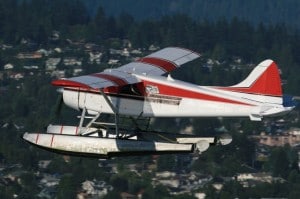In November 2011, the British Columbia coroner’s office announced the appointment of a “death review” panel to inquire into float plane safety in the province.
The purpose of this exercise is unclear.
According to the coroner’s office, the panel was created in response to four “commercial float plane crashes between August 2008 and May 2010”. From the perspective of November 2011, this is hardly a rash of accidents. More significantly, the Canadian Transportation Safety Board has already undertaken and completed its investigations into these accidents and delivered its final reports. These reports disclose little or no commonality among the four accidents other than the fact that they occurred during flying operations on the west coast of British Columbia.
Two of the accidents involved Grumman Goose amphibious aircraft which took off from land-based runways and ultimately crashed into rising terrain. These accidents may be attributed to weather and/or poor pilot judgment, but it is difficult to see how they raise issues of float plane safety.
The third accident involved the operation of a Cessna 185 on floats out of Tofino. The aircraft was seen flying straight and level at approximately 500 feet when it suddenly descended into the ocean. The investigation of the Transportation Safety Board concluded that there was nothing wrong with the aircraft or the operation. The probable cause of the accident was the action of two inebriated back seat passengers who kicked the pilot’s seat forward so that he lost control…not a problem unique to float plane operations.
Only the fourth accident which involved a de Havilland Beaver might truly raise issues of float plane safety. This accident occurred in November of 2009 when a DHc Beaver aircraft stalled on takeoff and crashed into the harbour at Saturna Island, where it sank with several passengers on board. The Transportation Safety Board concluded that the aircraft, which exceeded aft centre of gravity limits, stalled shortly after takeoff at an altitude from which recovery was improbable. Six passengers died in the accident and, for that reason, it generated substantial media attention. The industry, Transport Canada and the aircraft manufacturer all undertook separate analyses and actions to address issues raised by this accident.
Sea plane travel in Canada is common. In the Vancouver Harbour alone, it is reported that there are about 33,000 float plane movements per year, carrying about 300,000 passengers. These operations have been accident free for more than seven years.
The recent appointment of a “death review” panel by the British Columbia coroner does not appear justified by these events.


